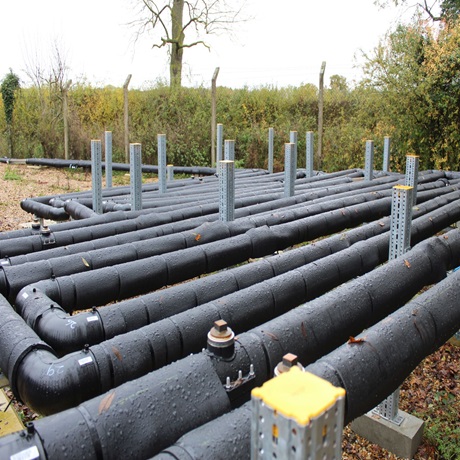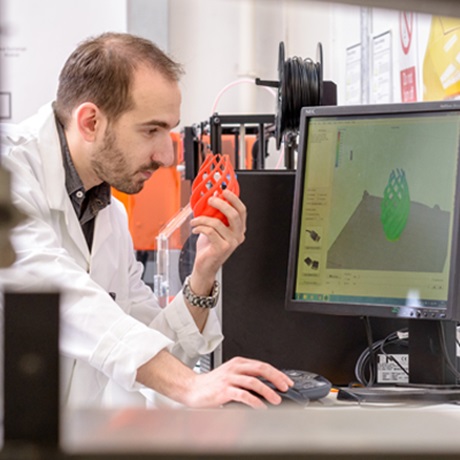The UK Collaboratorium for Research on Infrastructure and Cities (UKCRIC) will generate the knowledge needed to prioritise, de-risk and evidence government and industry investment in the UK’s physical infrastructure systems.
Cranfield University is part of UKCRIC, a nationwide group of fourteen universities (Birmingham, Bristol, Cambridge, Cranfield, Edinburgh/Heriot-Watt, Imperial, Leeds, Loughborough, Manchester, Newcastle, Oxford, Sheffield, Southampton, UCL) working to improve our understanding of critical infrastructure systems and their role in underpinning urban resilience.
Research impact
With £138 million from the UK Government and significant additional investment from the universities themselves, UKCRIC is one of the largest collaborative research capital investments in the UK, outside of national security and medicine.
Our work as part of UKCRIC will be to provide a knowledge base to secure the long-term functioning of the UK’s water services and generate innovative solutions to the challenges they face. Research is focused on treatment and distribution processes; future technologies like low energy treatment and nutrient and energy recovery; condition monitoring and performance assessment including development of repair techniques which are less disruptive to supply; enhancing resilience; system-wide operation and control; and integrated data systems.
Why have the UKCRIC facilities at Cranfield been funded?
Whilst more than £25 billion will be invested in the UK’s water infrastructure over the next five years, these systems face significant challenges in the form of climate change, a growing and increasingly affluent population, and an asset base that includes over 800,000km of sewer and water supply pipes with an estimated average age of 70 years. Lack of evidence and poor coordination of research facility development and utilisation have hindered the exploitation of innovations which have the potential to increase the resilience and sustainability of water services.
The urban water innovation and test facilities funded through UKCRIC at Cranfield, Sheffield and Newcastle universities will enable UK and international collaborative research to transform our understanding of water infrastructure degradation and failure mechanisms.
“UKCRIC is the biggest single UK investment in research facilities to address infrastructure and cities challenges to date and aims to radically transform the way that this type of research is carried out going forward,” Professor Paul Jeffrey, UKCRIC Director of Research and Director of Water Theme at Cranfield, recently said in an interview for Impact Science.
UKCRIC urban water innovation and test facilities at Cranfield
The UKCRIC facilities at Cranfield, along with those being built at Sheffield and Newcastle, will provide capabilities to advance the understanding of long-term performance and serviceability of water infrastructure, and deliver cheaper and more environmentally benign approaches to water treatment. They will also enable full-scale testing of new technologies for treatment, distribution and collection networks and flood management, which are of value to researchers working across disciplines (chemistry, biology, digital, materials, control systems engineering etc). The facilities will also be used to develop and test new approaches to water infrastructure design and operation which use advanced sensing and artificial intelligence techniques.

















